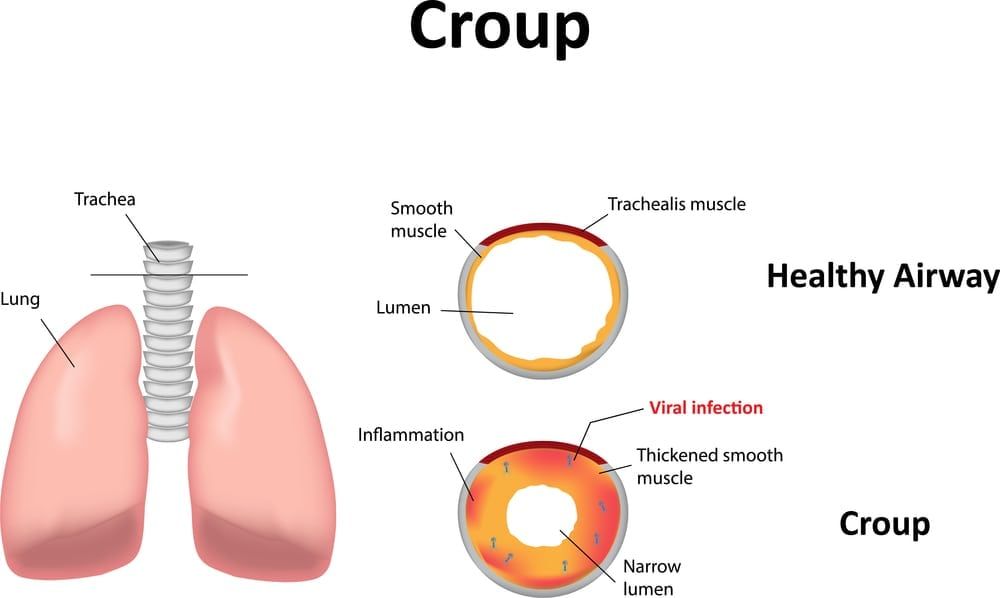Croup is a viral illness that most commonly occurs in young children. Croup causes the upper airways to become narrow, producing a ‘barking’ cough that typically becomes worse at night. The disease is said to be recurrent if a child develops more than two episodes per year. If a child has recurrent croup, which may persist for many weeks or come and go intermittently, take him or her to a pulmonologist for an examination.
Did you know…
that recurrent croup is unusual in children and could indicate a more serious underlying condition than a simple virus? Often, recurrent croup is not caused by something else entirely, such as an anatomic abnormality. Parents should view recurrent croup as a ‘red flag’ and seek medical attention for any child with three or more episodes of croup in a 12-month period.
Frequently Asked Questions
What are the symptoms of croup?
Croup is characterized by a harsh cough often described to sound like ‘barking’. Children with croup may also experience stridor, which is a noisy, high pitched sound produced when your child breathes in. Stridor may only last for a few days, whereas a croup cough can last up to a week.
What are the causes of recurrent croup?
Recurrent croup may be caused by one of several different conditions, such as gastroesophageal reflux disease (GERD), asthma or allergies. It can also be caused by a congenital condition, such as a cardiovascular abnormality, or it may be caused by a problem with a child’s airway, such as vocal cord paralysis or a tracheoesophageal fistula.
How will my child’s doctor address recurrent croup?
Parents are often encouraged to use a humidifier at home to help children with croup breathe easier when sleeping. A child with recurrent croup may need to undergo a bronchoscopy, endoscopy, x-rays and other diagnostic testing to determine the cause of the condition before a treatment recommendation can be made.











































































































































































































































































































